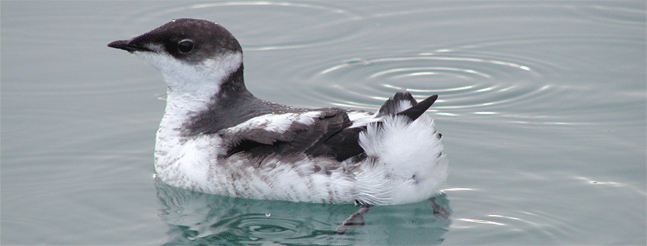April 10, 2017 — The Oregon Senate passed legislation today to protect sensitive salmon and lamprey habitat from suction dredge mining. The Suction Dredge Reform bill (SB 3-A Engrossed) balances the cultural heritage of mining in Oregon with impacts to native fish and clean water. The bill stops mining in sensitive habitat, but allows it to continue elsewhere under a permit system.
Press Release: Judge Says Timber Sale Near Crater Lake Could Harm Wildlife
March 21, 2017 — A U.S. District Court in Eugene has issued an order requiring the Umpqua National Forest to more comprehensively study environmental impacts of the proposed Loafer Timber Project timber sale. The Forest Service must complete the study and weigh its findings before proceeding with the timber sale, in an area about 60 miles east of Roseburg, Oregon.
Cascadia Goes to Court to Defend Wolf Protections in California
March 14, 2017 — Four conservation groups filed a motion today to intervene in a lawsuit seeking to remove California Endangered Species Act protections from wolves. The lawsuit, against the state Fish and Wildlife Commission, was brought by the Pacific Legal Foundation and wrongly alleges that wolves are ineligible for state protection.
Reflections on the Enormous Victory in Northern Cascadia and Coming Full Circle
by Gabe Scott, Cascadia Wildlands House Counsel Ready for some good news? Last week our partners at Eyak Preservation Council announced that the major part of Alaska’s Bering River Coalfield, and … Continue reading Reflections on the Enormous Victory in Northern Cascadia and Coming Full Circle
Court Halts Logging of Elliott State Forest Tract Sold to Timber Company
December 20, 2016 — A U.S. District Court in Eugene has issued a preliminary ruling preventing Scott Timber from clearcutting a parcel of the Elliott State Forest purchased from the state of Oregon. The court found that the proposed logging of the Benson Ridge parcel by the subsidiary of Roseburg Forest Products raised serious questions over the potential harm threatened marbled murrelets, in violation of the federal Endangered Species Act.

Oregon Board of Forestry Reverses Course, Will Develop Murrelet Protections
December 1, 2016 — The Oregon Board of Forestry has reversed its prior decision to deny a petition from conservation groups that called for the identification and protection of marbled murrelet sites on state and private forest lands. The Board is now coordinating with the Oregon Department of Fish and Wildlife and other state land owning agencies to identify and protect important old-growth forest areas for the seabird threatened with extinction.
Coyote Killing Contest Placing Oregon’s Wolves in Crosshairs
November 14, 2016 — Six wildlife conservation organizations representing nearly 212,000 Oregonians are calling on the U.S. Forest Service and Bureau of Land Management to stop a coyote-hunting contest planned for Nov. 19-20. The groups are concerned that in addition to being cruel and wasteful, the “Lake County Coyote Calling Derby” could result in killing of endangered gray wolves, in violation of the Endangered Species Act.
Post-election Thoughts: Action is the Antidote to Despair
Today, Joan Baez’s trusty adage “action is the antidote to despair” fills my brain. I woke up yesterday morning and took a long, hot shower, trying to forever rinse … Continue reading Post-election Thoughts: Action is the Antidote to Despair
Science Review Begins for Northwest Forest Plan Revision
November 10, 2016 — Today, the United States Forest Service released for public and heightened peer review its anticipated science synthesis, which will inform the need to revise the renowned Northwest Forest Plan. The Forest Service is currently taking public comment on the synthesis through January 6, 2017, and the agency will host a public forum on December 6, 2016 in Portland, Oregon at the Doubletree Hotel from 8:30am to 1pm.
Poll: Most Oregonians Oppose Hunting of Wolves, Favor Nonlethal Conflict Prevention
October 7, 2016 — A new poll conducted by Mason Dixon Polling and Research finds that the vast majority of Oregon voters — from both rural and urban areas — oppose using hunting as a management tool for wolves in the state and believe wildlife officials wrongly removed state protections from wolves. The poll also revealed that most Oregonians believe nonlethal methods should be the primary focus in reducing conflicts between wolves and livestock.
